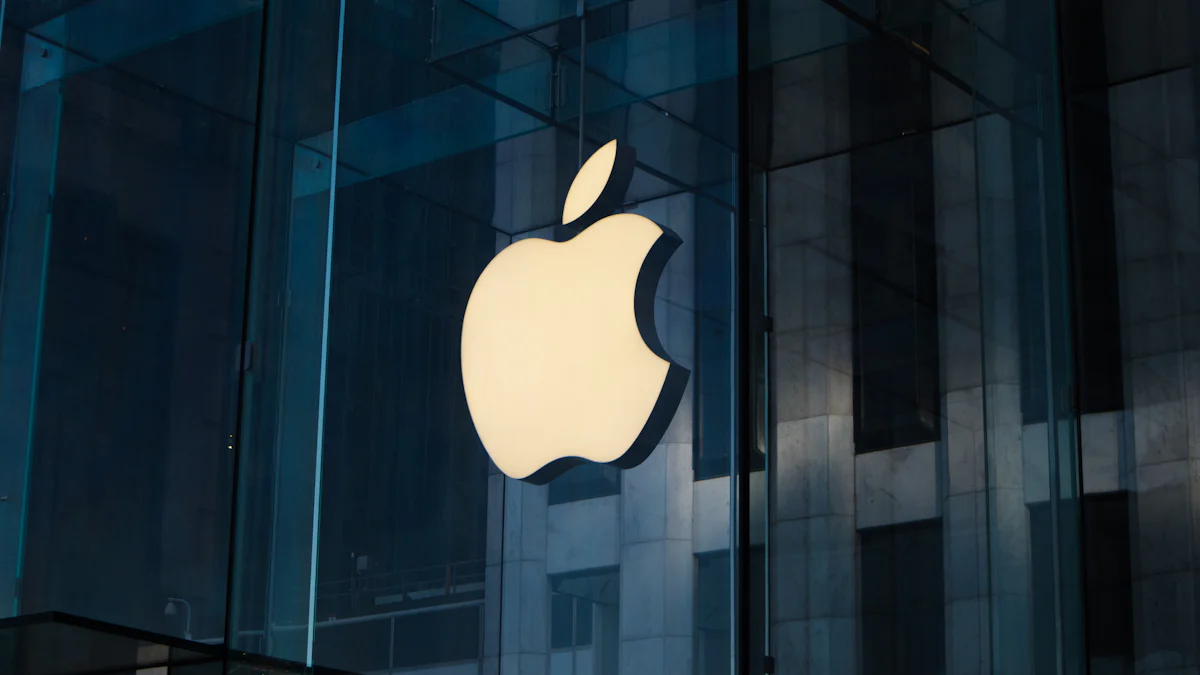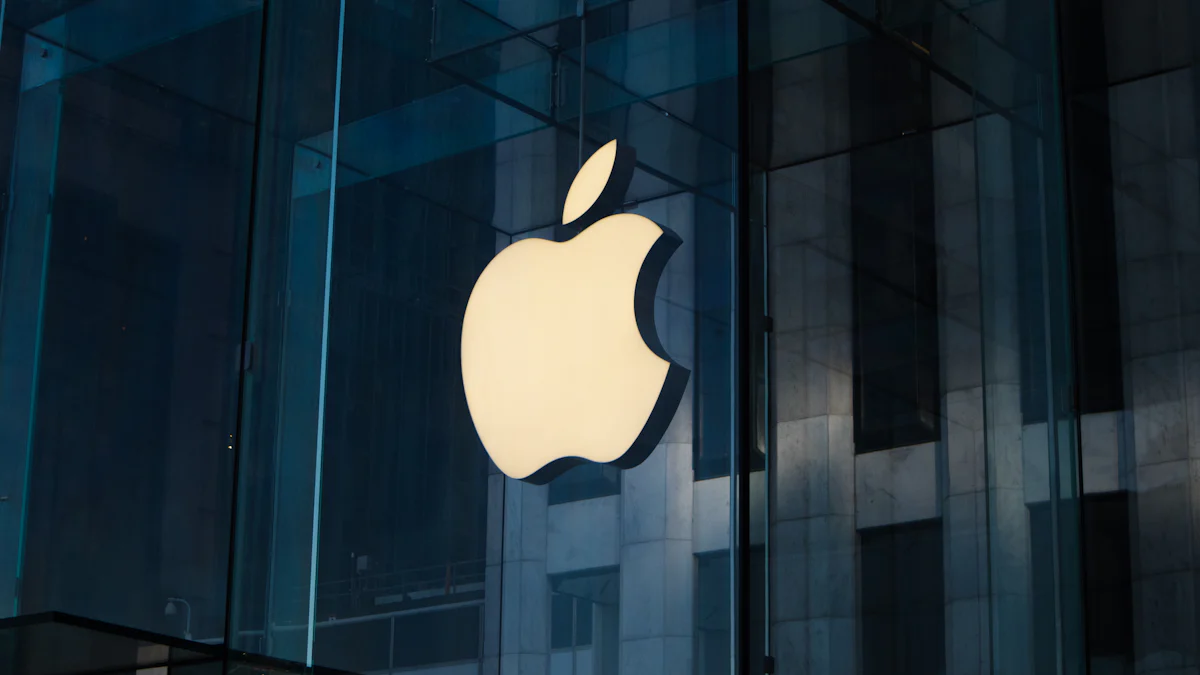- Explore
- News
- Apple Supply Chain: Shifts and Innovations
Apple Supply Chain: Shifts and Innovations


Apple stands as a paragon of supply chain excellence. The apple supply chain orchestrates a complex network of suppliers, manufacturers, and distributors across 43 countries. This intricate system enables Apple to capture 58.5 percent of the iPhone's value while maintaining labor costs in China at just 1.8 percent of the retail price. Peicheng emerges as a pivotal player in this network. Jerry Chi, Peicheng's CTO, leverages his 14-year tenure at Apple, where he managed supply chain operations for products like the Apple Watch and iPad. His expertise significantly enhances Peicheng's production capabilities.
Overview of Apple's Supply Chain
Historical Context
Early Supply Chain Strategies
Apple's early supply chain strategies focused on building strong relationships with key suppliers. The company established long-term partnerships to ensure a stable source of components and materials. Apple worked closely with logistics partners to manage its supply chain effectively. The use of SCM and ERP systems allowed Apple to track and manage inventory levels efficiently. This strategic approach laid the foundation for the apple supply chain's success.
Evolution Over the Years
Over the years, the apple supply chain evolved significantly. Apple continuously invested in technological advancements to enhance supply chain operations. The company prioritized sustainability initiatives, including the Apple Supplier Clean Energy program. These efforts drove technological advancements and encouraged collaboration among suppliers. The demand for Apple’s products created a ripple effect throughout its supply chain, benefiting suppliers and local economies.
Current Structure
Key Components
The current structure of the apple supply chain involves a complex network of suppliers, manufacturers, and distributors. Apple maintains strategic relationships with key suppliers, focusing on trust, collaboration, and shared values. The integration with suppliers ensures a reliable source of components. Apple's supply chain success starts with these strategic relationships.
Role of Peicheng in Current Operations
Peicheng strongly affected by Apple's supply chain operations. Jerry Chi, Peicheng's CTO, brings over 14 years of experience from Apple. He managed supply chain operations for products like the Apple Watch and iPad. His expertise significantly enhances Peicheng's production capabilities. Jerry Chi's experience in production and quality management provides substantial support for Peicheng's tablet production. This collaboration strengthens the overall apple supply chain.
Challenges in Apple's Supply Chain
Apple faces significant challenges within its supply chain. The intricate network of suppliers and manufacturers must navigate various obstacles to maintain efficiency and reliability. Understanding these challenges is crucial for Apple's continued success.
Global Dependencies
Risks of Over-reliance on Specific Regions
The apple supply chain heavily relies on specific regions for production and assembly. This over-reliance poses significant risks. Concentrating production in one area can lead to vulnerabilities. Apple learned this lesson during the Covid crisis. The pandemic highlighted the weaknesses in having a centralized manufacturing hub. Apple has since encouraged partners to diversify their operations. This strategy aims to mitigate geographical risks and enhance supply chain resilience.
Impact of Geopolitical Tensions
Geopolitical tensions significantly impact the apple supply chain. Political events, trade disputes, and international conflicts create uncertainties. Apple's manufacturing partners are primarily located in Asia, including China, India, Japan, South Korea, Taiwan, and Vietnam. These regions face geopolitical challenges that can disrupt supply chain operations. Apple's strategic diversification efforts aim to reduce these risks. The company seeks to minimize disruptions by expanding its supplier base and exploring new markets.
Supply Chain Disruptions
Natural Disasters
Natural disasters pose significant challenges to the apple supply chain. Events such as earthquakes, floods, and typhoons can disrupt production and logistics. Climate change exacerbates these risks, demanding urgent attention from Apple. The company must implement robust risk management strategies to mitigate the impact of natural disasters. Advanced forecasting techniques and inventory management practices can help optimize supply chain operations.
Pandemic Effects
The global coronavirus pandemic severely affected the apple supply chain. The reliance on many Chinese suppliers created vulnerabilities. The pandemic disrupted production schedules and delayed product launches. Apple faced challenges in bouncing back from these disruptions. The company's efforts to diversify its supply chain aim to prevent similar issues in the future. By encouraging partners to establish operations in new countries, Apple seeks to enhance supply chain resilience.
Innovations and Shifts

Apple consistently leads in supply chain innovation. The apple supply chain integrates cutting-edge technologies to enhance efficiency and reliability. Apple focuses on technological advancements and strategic diversification to maintain its competitive edge.
Technological Advancements
Automation and AI
Automation plays a crucial role in the apple supply chain. AI-powered robots handle repetitive tasks with precision. These robots streamline operations and reduce human error. AI also monitors supplier performance, ensuring high-quality standards. Predictive analytics powered by AI improve demand forecasting. This technology enables Apple to optimize inventory levels and ensure timely delivery. Apple's commitment to automation and AI enhances customer satisfaction and maintains product quality.
Use of Blockchain
Blockchain technology offers transparency and security in the apple supply chain. Blockchain tracks product movement from suppliers to consumers. This technology ensures authenticity and prevents counterfeit products. Blockchain provides a secure platform for data sharing among stakeholders. Apple's use of blockchain enhances trust and collaboration within the supply chain. This innovation strengthens the overall reliability of Apple's operations.
Strategic Diversification
Supplier Diversification
Apple prioritizes supplier diversification to mitigate risks. The company encourages partners to diversify their supply chains. This strategy reduces over-reliance on specific regions. Apple sources components from multiple suppliers worldwide. This approach enhances supply chain resilience and minimizes disruptions. Supplier diversification ensures a steady flow of materials for manufacturing.
Regional Manufacturing Hubs
Apple establishes regional manufacturing hubs to support its global operations. These hubs reduce logistical challenges and enhance production efficiency. Apple strategically selects locations for manufacturing based on geopolitical stability. Regional hubs allow Apple to adapt to market changes swiftly. This strategy supports Apple's goal to diversify its supply chain. Apple's regional manufacturing hubs contribute to shaping retail supply chains globally.
Peicheng plays a vital role in Apple's manufacturing improvements. Jerry Chi, Peicheng's CTO, leverages his extensive experience from Apple. His expertise in production and quality management benefits Peicheng's tablet production. Jerry Chi's contributions strengthen Peicheng's position in tech supply chains. His leadership ensures that Peicheng aligns with Apple's high standards.
Case Studies and Real-World Examples
Successful Implementations
Peicheng's Role in Streamlining Processes
Peicheng demonstrates excellence in aligning with Apple's supply chain strategy. Jerry Chi, Peicheng's CTO, brings over 14 years of experience from Apple. His leadership enhances Peicheng's production capabilities. The production management team at Peicheng follows Apple's high standards. This alignment ensures quality assurance for Peicheng's tablets. Peicheng's collaboration with Apple improves product quality and competitive pricing. The partnership strengthens Peicheng's reputation in the consumer electronics industry.
Examples of Efficiency Gains
Peicheng achieves significant efficiency gains through strategic alignment. The company's operations benefit from Apple's purchasing power. Peicheng negotiates favorable terms, enhancing productivity. The integration of advanced logistics systems optimizes supply chain management. Peicheng's streamlined processes result in reduced lead times and cost savings. The collaboration with Apple leads to improved logistics management and supply chain resilience.
Lessons Learned
Adaptation to Market Changes
Apple's supply chain strategy provides valuable lessons in adaptability. The company encourages partners like Peicheng to diversify operations. This approach mitigates risks associated with geopolitical tensions. Peicheng's ability to adapt to market changes enhances its competitive edge. The focus on regional manufacturing hubs supports swift responses to consumer demands. Peicheng's alignment with Apple's strategies ensures long-term success in the dynamic electronics market.
Future Outlook
The future outlook for Peicheng remains promising. The collaboration with Apple positions Peicheng as a leader in supply chain innovation. Jerry Chi's expertise continues to drive improvements in production and quality management. Peicheng's focus on logistics management and supply chain excellence supports sustained growth. The company's commitment to aligning with Apple's objectives ensures continued success in the consumer electronics supply chain.
Future Supply Chain Shifts

Apple Falls and Diversification
Move Explained
Apple plans to move production to regions like India. This departure from China represents a strategic shift in Apple's supply chain structure. The move aims to reduce reliance on single regions and enhance supply chain visibility. Apple to move production aligns with global trends of diversification. The company seeks to mitigate risks associated with geopolitical tensions and economic fluctuations.
Supply Chain Managers' Perspectives
Supply chain managers emphasize the importance of this move. Moving to diversify Apple ensures resilience against disruptions. Experts highlight the need for flexible supply chain management. A diversified approach allows for better adaptation to market dynamics. Supply chain management professionals see this as a proactive strategy to maintain competitive advantage.
Supply Chain Change Management
Upstream Supply Chain Change
Upstream supply chain change plays a crucial role in future shifts. Apple focuses on enhancing supply chain visibility through strategic partnerships. The company collaborates with suppliers to ensure seamless integration. Supply chain change management involves adapting to new technologies and processes. This approach supports efficient operations and minimizes potential disruptions.
Supply Chain Lessons from Varun Gupta
Varun Gupta, a supply chain management expert, offers valuable insights. Maintaining a flexible, diversified supply chain is essential for success. Companies must adapt to increasing global uncertainty. Supply chain lessons emphasize the importance of risk mitigation strategies. Businesses benefit from a robust supply chain structure that supports innovation and growth.
Apple's supply chain exemplifies the importance of Apple's supply chain continuous adaptation and innovation. The COVID pandemic highlighted the need for diversification and resilience in global supply chains. Apple responded by strategically diversifying its manufacturing hubs, ensuring agility and quick adjustment to market changes. Peicheng, under the leadership of Jerry Chi, plays a crucial role in this transformation. Jerry Chi's extensive experience at Apple enhances Peicheng's production capabilities. David Collins III emphasizes that maintaining a flexible and diversified supply chain is essential for business success. Apple's approach sets a benchmark for the industry, compelling competitors to innovate and improve.













